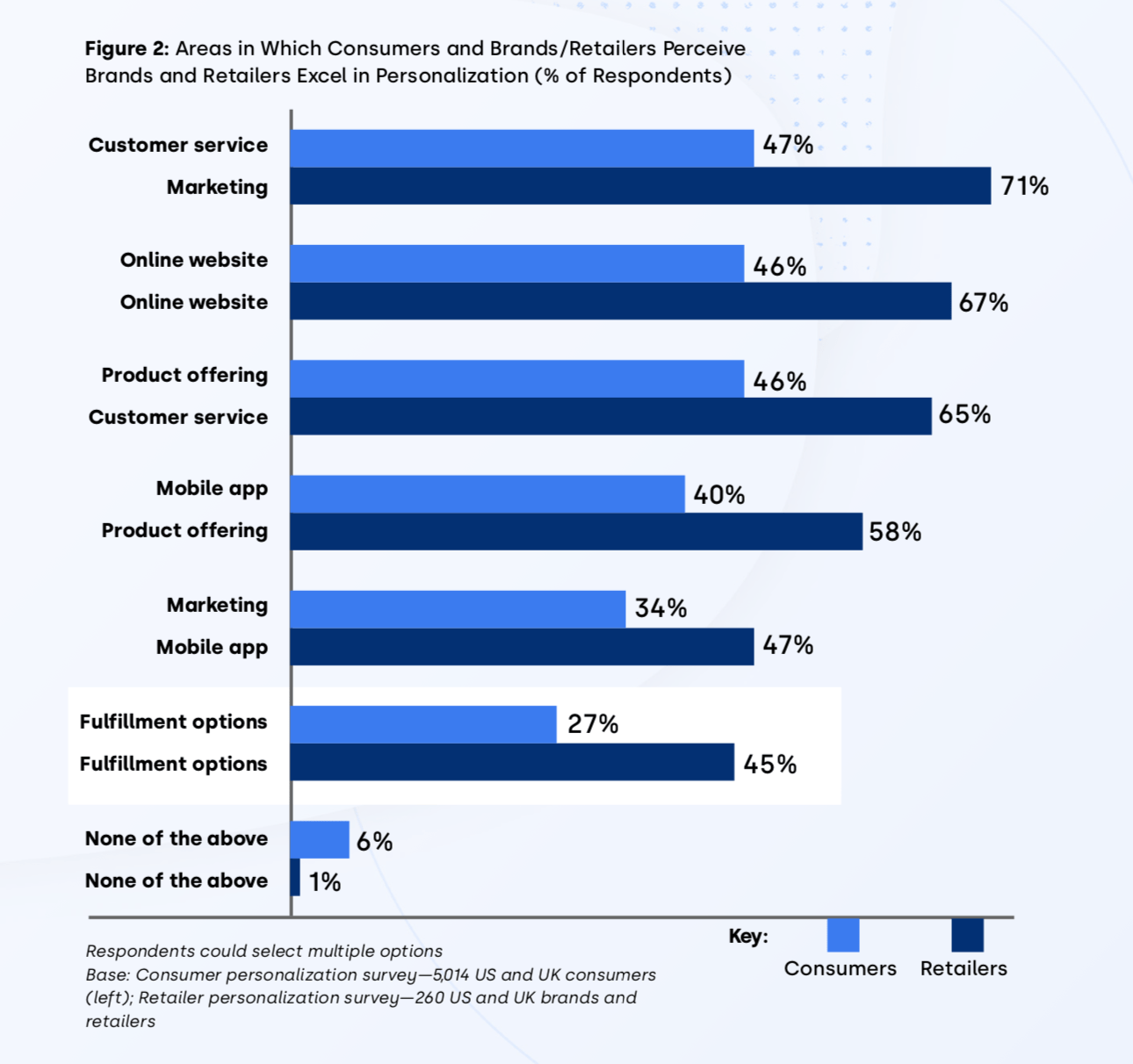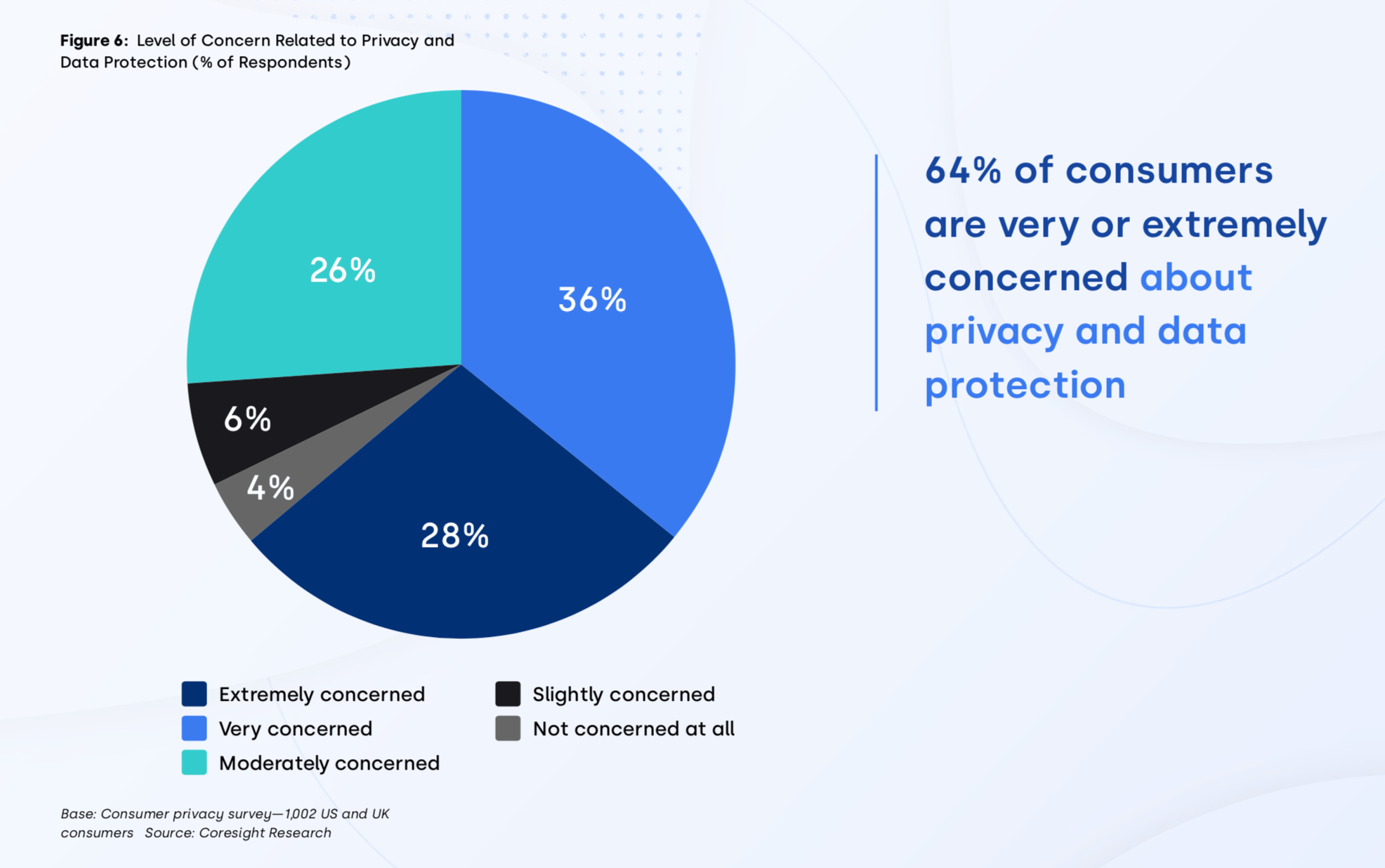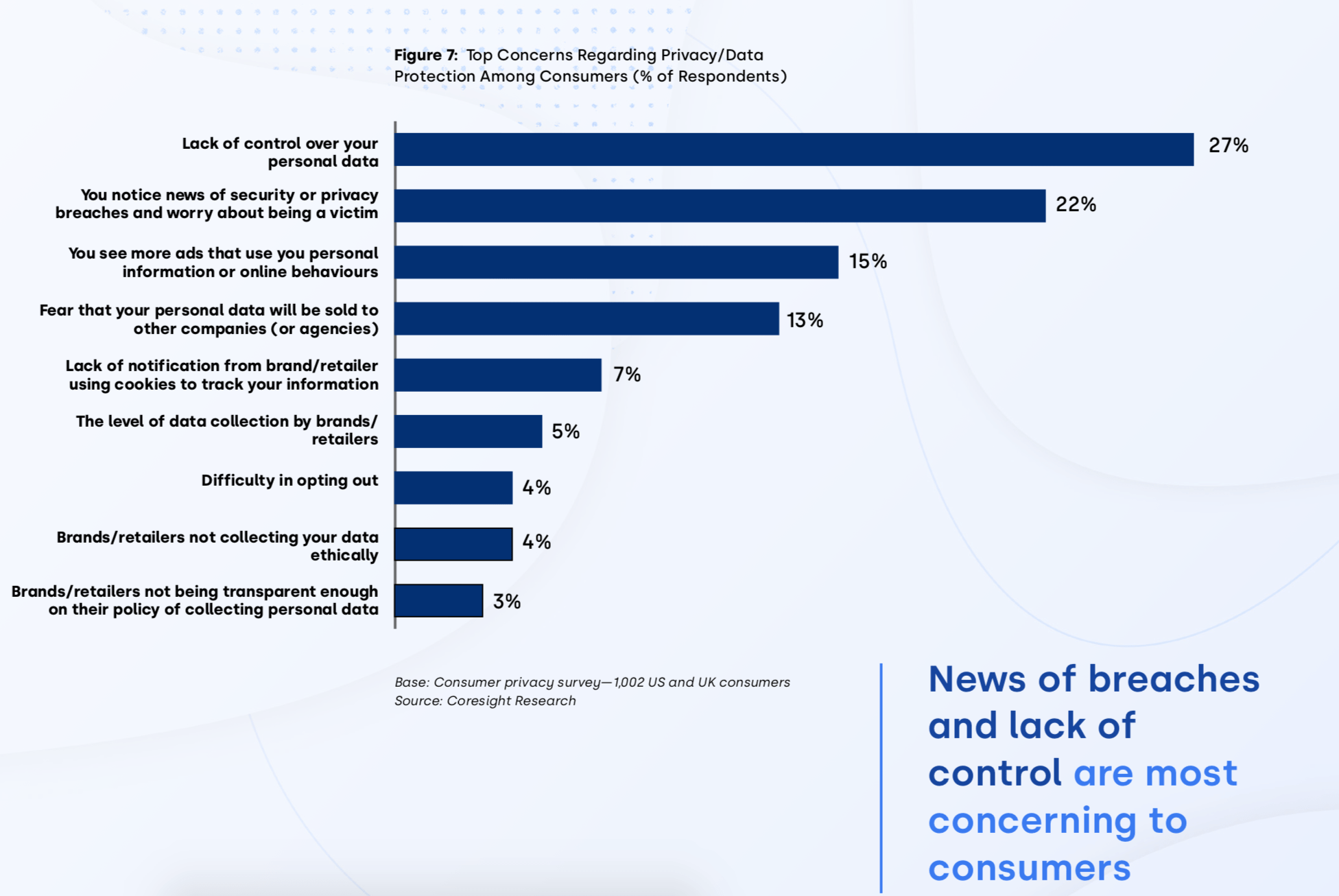What Consumers Think About Personailzation and Privacy

Personalization can bring in extra dollars for brands and retailers, as more than two-thirds of consumers surveyed said they will shop more often with companies that personalize the experience.
Consumers think brands and retailers are not doing enough when it comes to personalization: 71% of brands and retailers think they excel in marketing personalization, but only 34% of consumers think the same.
Cost-saving incentives, such as offers and discounts, drive consumers to join loyalty programs, particularly Gen Z consumers.
While 96% of consumers have concerns regarding data protection and privacy, 36% of consumers are positive about sharing personal data to brands and retailers for better personalized recommendations and experiences.
Personalization can bring in extra dollars for brands and retailers, as more than two-thirds (71%) of consumers surveyed said they will shop more often with companies that personalize the experience.
Brands and retailers can deliver personalization to customers in the following ways:
- Creating a consistent shopping experience across desktop, in-store and mobile sites, as well as through email
- Offering products and experiences that align with the shopper’s purchase patterns and browsing preferences
- Adopting personalized pricing and promotional strategies such as coupon codes to reward consumers’ loyalty
Another interesting finding from our survey is that consumers think brands and retailers are not doing enough when it comes to personalization: 71% of brands and retailers think they excel in marketing personalization, but only 34% of consumers think the same.

What Consumers Think About Data Privacy
The majority of consumers (96%) are at least slightly concerned about data protection, according to our surveys.
While consumers are comfortable giving personal data to retailers and brands for more personalized experiences, they are concerned about companies giving their data to third parties. The primary reasons for this concern include a lack of control over personal data, news of security/privacy breaches and seeing more ads that pertain to customers’ personal behaviors (see Figure 7). While our consumer privacy survey found that 36% of consumers feel positive about sharing personal data to brands and retailers to receive better personalized experiences, consumers remain concerned about companies giving their data to third parties — cited by 13% of our survey respondents as a top concern. Brands and retailers therefore need to assure they are putting consumers’ data to legitimate use. At the same time, this reinforces the importance of value exchange: consumers are willing to share personal data to brands and retailers if they perceive value in doing so.

Despite the concerns that consumers have around privacy and data protection, they are still willing to share their personal information with retailers and brands for value in return. For example, from our consumer privacy survey, 69% of consumers said they would be willing to share their birthday with retailers and brands they trust. Brands and retailers should collect this data and build it into their personalization efforts.
Our survey found the following two trends:
- Higher proportions of consumers report willingness to share generic, less-sensitive personal information with retailers and brands (new or trusted) — such as their name, gender and email address — than the proportions willing to share sensitive data such as their home address and phone number.
- There was a 7%–10% difference in consumer willingness to share personal data with a trusted retailer/brand compared to a new retailer/brand, across all types of data.

The reasons behind consumer willingness to share personal data relate to cost incentives: 81% of consumers in our consumer privacy survey cited a willingness to share personal data to earn loyalty program benefits to a trusted retailer/brand and 70% are willing to share their data to receive special discounts and offers to a trusted brand/retailer. In fact, we see Gen Z consumers are more attracted towards cost incentives than overall, with 84% citing loyalty program benefits as a reason and 78% citing special discounts and offers as reason for sharing personal data to a trusted brand/retailer.
This should serve as a wake-up call for retailers and brands to build marketing and data collection strategies that rely on information customers voluntarily provide. With new policies such as Google and Apple privacy updates limiting current data collection methods, now is the time for retailers and brands to pivot to machine learning, data collection and predictive analysis. Interestingly from our retailer personalization survey, 69% of retailers and brands think user privacy updates from Google brought them a positive impact on personalization marketing strategies, while 65% thought the same for user privacy updates from Apple.
What This Means for Retailers and Brands
Personalized marketing uses data to create customized experiences for shoppers which can lead to better engagement, increased conversions and higher sales. This can only be done if retailers and brands elevate their efforts to meet consumers’ expectations for custom content and experiences, and treat personalization as
a strategic priority. The ways retailers and brands can do so include leveraging loyalty programs, advanced personalization tactics and making the best use of personal data in order to create value exchange with consumers.
Implications for Brands and Retailers:
- Brands and retailers need to leverage personalization tactics to curate better offers for shoppers.
- Retailers and brands should re-examine where their personalization efforts are placed to more closely align with shoppers’ platform and communication preferences.
- Shoppers are willing to share personal information in exchange for value, such as tailored offerings and purchasing incentives (including discounts).
- Promotions should not be the only tool for cultivating loyalty. Brands and retailers should place more focus on delivering customers the right content through the right channel at the right time.
Data privacy is important to consumers but is not an obstacle to knowing a shopper’s preferences. Consumers in fact are willing to share personal data which retailers and brands need to make best use of.
Source: Sailthru and Coresight Research